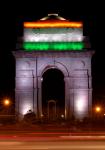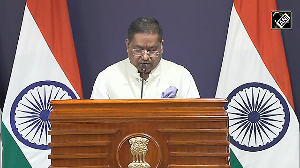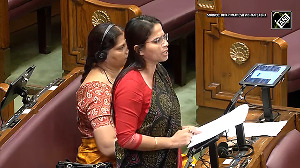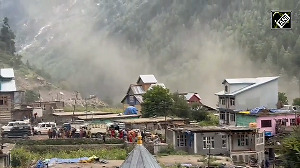The much-awaited decision on the Archaeological Survey of India plea for extension of time for completing the on-going excavations at the disputed site in Ayodhya was once again deferred on Wednesday by the special high court bench dealing with the case.
The three-judge bench heard arguments of rival parties involved in the case, but reserved its order, both on the question of extending the time as well as other key issues raised by the Sunni Central Waqf Board.
ASI has been pleading for an extension of the two and a half months time over and above the month long period that was initially given by the court in its original order on excavation on March 3.
The exercise was undertaken on March 12 in pursuance of the order of this special bench to find out whether a Hindu temple existed at the contentious site before Mughal emperor Babur built the 16th century Babri Mosque. Violent Hindu radicals razed the mosque in December 1992, sparking of nation wide bloody communal riots.
Meanwhile, the court summoned Faizabad Commissioner R M Srivastava and some other officials directly associated with the current excavations at the disputed site in the ancient Hindu temple town of Ayodhya.
The three-judge bench directed the government counsel to ensure the presence of the commissioner who is also the official receiver of the disputed Ramjanmbhoomi-Babri Masjid, before the court on Thursday.
Among others who have been told to appear before the court were the executive engineer of Public Works Department in Ayodhya, the Ayodhya sub-divisional magistrate and the two local labour contractors entrusted with the task of providing labourers for the on-going digging.
While these directions were issued in the wake of repeated objections raised by the SCWB against the various procedures adopted by the Archaeological Survey of India, one of the key objections was over the failure of ASI to ensure engagement of an equal number of Hindu and Muslim labourers.
"We have also urged the honourable court to ask the ASI to specify the number and depth of trenches it proposes to dig as also the area that it plans to cover," Waqf Board counsel and Babri Masjid Action Committee convenor Zafaryab Jilani said.
"I understand that a number of bones recovered from the excavation site did not find mention in the recovery list," he added.
Veereshwar Dwivedi, the counsel for Vishwa Hindu Parishad, opposed Jilani's arguments.





